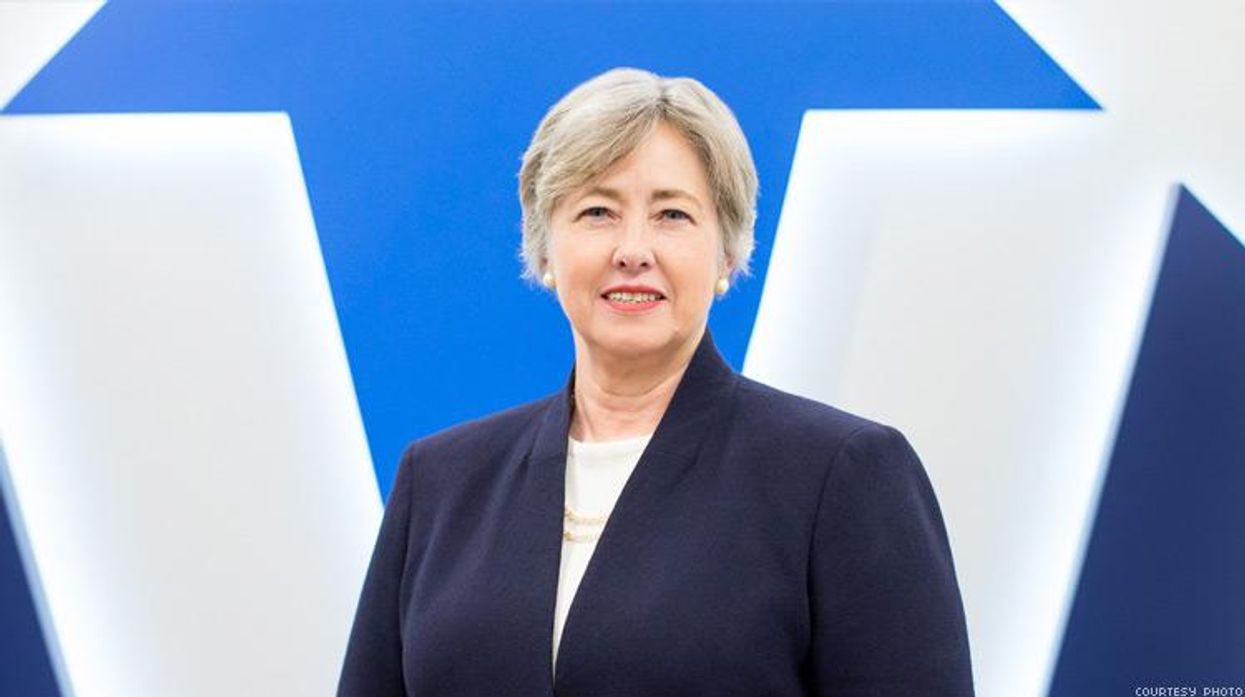
The former Houston mayor and current president of the LGBTQ Victory Fund is unbowed and wants you to be too.
June 15 2018 6:05 AM EST
By continuing to use our site, you agree to our Privacy Policy and Terms of Use.

The former Houston mayor and current president of the LGBTQ Victory Fund is unbowed and wants you to be too.
Three years ago, in the wake of the Supreme Court's marriage equality ruling, the owner of a Tennessee hardware store posted a sign on the door: "No Gays Allowed." Not long after, he added another one, saying "We reserve the right to refuse service to anyone who would violate our rights of freedom of speech & freedom of religion." He began selling "Choose God or Gays" hats and bumper stickers -- they sold out quickly. And after the Supreme Court's Masterpiece Cakeshop ruling last week, he celebrated: "This is a great win ... but this is not the end; this is just the beginning."
In that last point, he's correct. It is just the beginning. While in Masterpiece the court ruled in favor of a Colorado baker who refused a gay couple service, it was decided on a technicality and did not touch on whether "religious freedom" claims preempt LGBTQ nondiscrimination laws. Yet the outcome is emboldening forces opposed to equality and inspiring them to further challenge LGBTQ nondiscrimination laws in hopes of hollowing them out or even overturning them. With tacit support from the Justice Department and the White House, it is certain more employers, housing providers, and business owners will deny services to LGBTQ Americans as a result -- including in states and municipalities with existing protections.
Our community must acknowledge this reality. Most Americans oppose discrimination against anyone -- this baker and hardware store owner are the fringe. But these extremists are enormously successful at preventing nondiscrimination bills from passing in most states and at the federal level. They have consistently convinced politicians to defy public opinion and kill pro-equality bills. Yet there are actions we can take to push back these bigoted forces and protect our people.
First, we must educate our friends, family, and all Americans. Seventy-five percent of Americans support a federal nondiscrimination law for LGBTQ people, but an incredible 80 percent believe it is already illegal to fire someone or deny them housing because they are LGBTQ. That means the friend or family member attending the Pride parade with you, or your work buddy, may not know it is legal to discriminate against LGBTQ people in 29 states. There can be little progress on legislation most Americans believe already exists.
Next, we must pressure elected officials to prioritize and invest in state and local human rights offices that enforce nondiscrimination laws. In states and municipalities with LGBTQ protections, these agencies are the frontlines for mediating and adjudicating discrimination complaints that come before them -- and the vast majority are drastically understaffed and underfunded. When these agencies fail to work properly, victims of discrimination are forced either to initiate their own expensive legal process or allow the discriminator to go unpunished. The latter is more common, unfortunately, and inevitably leads to more incidents of discrimination. And it is likely the Supreme Court ruling will lead to even more cases before these offices.
Lastly, we need to elect more LGBTQ people to every level of government. Besides their direct legislative role, LGBTQ elected officials humanize our lives for their colleagues and ensure we have a voice in policy debates. When Congress was voting on an LGBTQ nondiscrimination measure in 2016, openly LGBTQ U.S. Representatives Mark Takano and Kyrsten Sinema went to the Republican side of the chamber to make eye contact with legislators as voting began. They wanted to make clear it was their lives they were voting on. When lawmakers in Colorado aimed to defund the state's human rights office, openly lesbian state Rep. Leslie Herod asked the bill's supporters whether they truly wanted her kicked out of a restaurant in their district simply because of who she loves. At least one became teary-eyed. The answer was clearly no. LGBTQ elected officials are slowly chipping away at the anti-LGBTQ beliefs of many of their colleagues, but there is power in numbers and our numbers remain small.
Traveling across the country as president & CEO of LGBTQ Victory Fund is a constant reminder of the inequities faced within our community. Inequities related to race, ethnicity, and gender identity, but also to geographic location. Those of us protected by nondiscrimination laws often forget that 52 percent of LGBTQ people live in states where they can be fired for putting up a photo of their spouse, denied housing because of a same-sex partner, or removed from a restaurant because they are trans. But with this renewed threat to those living with or without protections, all of us should be reminded we are in this fight together.
So tell your loved ones discrimination is legal in most states, ask your city council candidate about their budget plans for the human rights office, and get out the vote for or provide money to LGBTQ candidates. We are fighting for our future.
ANNISE PARKER is the president and CEO of LGBTQ Victory Fund and the former mayor of Houston.
Charlie Kirk DID say stoning gay people was the 'perfect law' — and these other heinous quotes